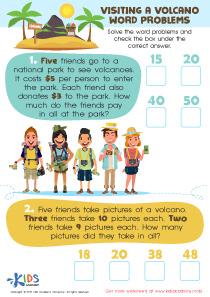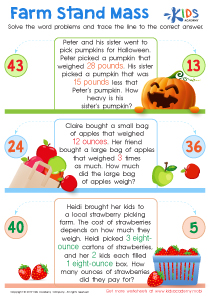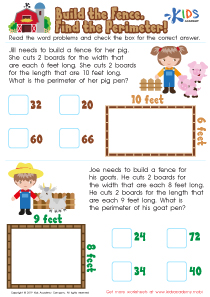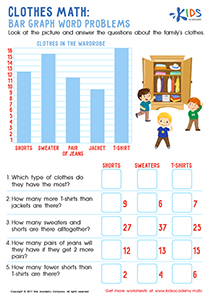Critical Thinking Normal Addition and Subtraction Word Problems Worksheets for 5-Year-Olds
3 filtered results
-
From - To
Discover our engaging Critical Thinking Normal Addition and Subtraction Word Problems Worksheets, specially designed for 5-year-olds! These worksheets offer young learners an opportunity to enhance their problem-solving and critical thinking skills while learning fundamental math concepts. Each word problem is thoughtfully crafted to be age-appropriate, inviting children to think creatively and logically. By using relatable scenarios, our worksheets help kids make connections between math and real-world situations. Perfect for classroom or home use, these resources support early math education while making learning enjoyable. Let your child embark on an exciting journey of discovery through math today!


Tricky Problems Worksheet: Part 1


Word Problems: Assessment 2 Worksheet
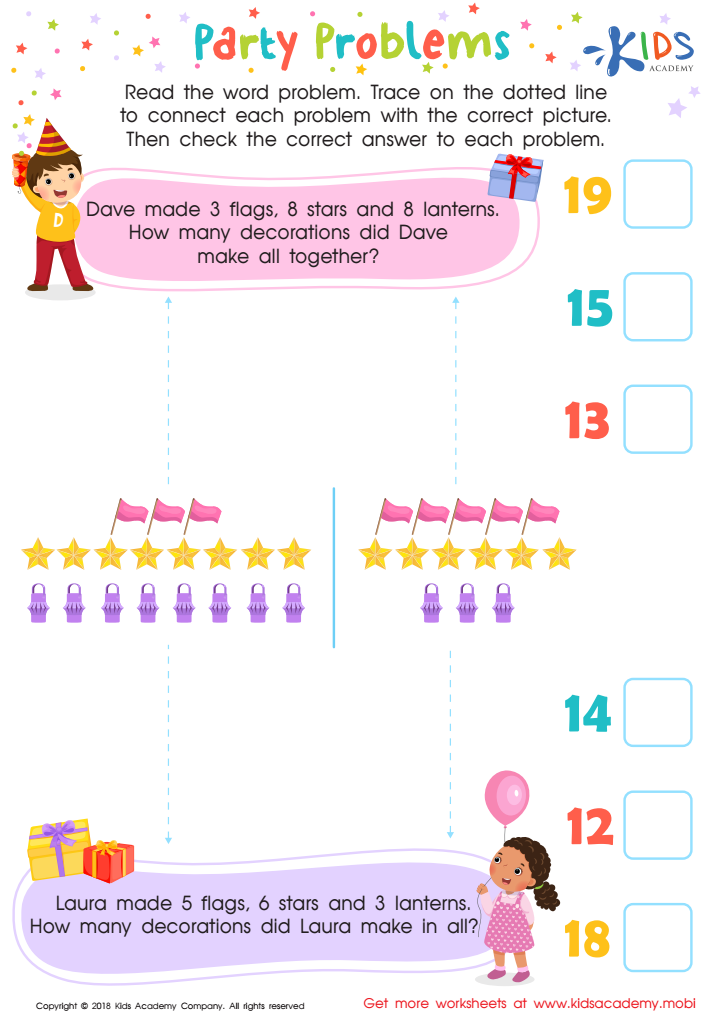

Party Problems Worksheet
Parents and teachers should recognize the importance of teaching critical thinking in normal addition and subtraction word problems to 5-year-olds for several key reasons. First, engaging with these problems helps children develop foundational mathematical skills. At this age, they begin to understand numbers, and real-world applications of addition and subtraction make these concepts relatable and meaningful.
Additionally, critical thinking nurtures problem-solving abilities. By encouraging 5-year-olds to analyze word problems, evaluate information, and articulate their thought processes, they learn how to approach challenges systematically. This cognitive development extends beyond mathematics, fostering skills that contribute to their overall academic success.
Furthermore, addressing word problems enables children to enhance their language skills. They learn to comprehend and analyze the context of questions, improving their listening and communication abilities.
Lastly, instilling critical thinking early on lays the groundwork for future learning. Students who can think critically are more equipped to navigate complex concepts as they progress through their education. Prioritizing critical thinking in mathematics, particularly through addition and subtraction word problems, can significantly benefit young learners, ultimately shaping their approach to challenges in both academics and life.
 Assign to My Students
Assign to My Students








